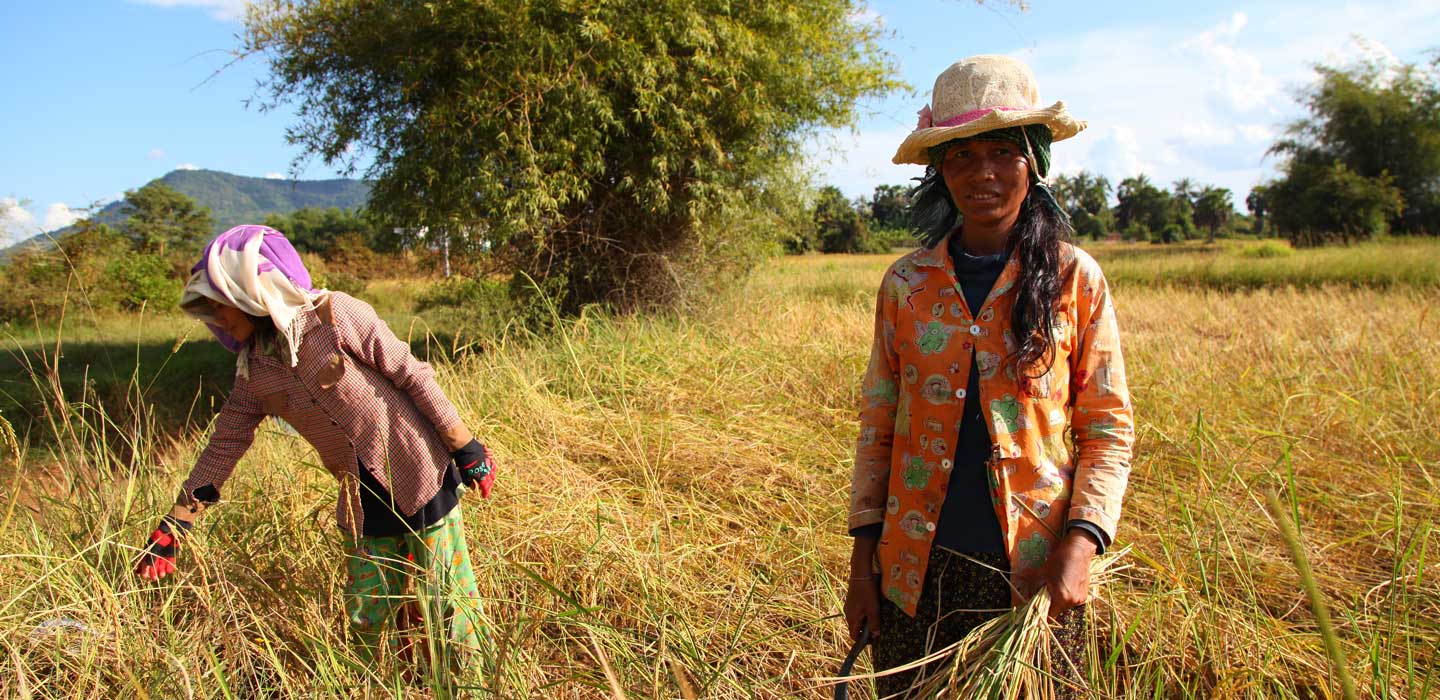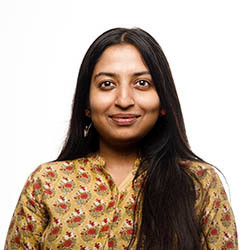IFAD, the UN’s rural development agency, and the Kingdom of Cambodia deepen partnership for inclusive agricultural growth
IFAD Asset Request Portlet
Asset Publisher
IFAD, the UN’s rural development agency, and the Kingdom of Cambodia deepen partnership for inclusive agricultural growth
06 February 2023
Phnom Penh, 6 February 2023: An International Fund for Agricultural Development (IFAD) delegation to the Kingdom of Cambodia led by Jyotsna Puri, Associate Vice-President of the Strategy and Knowledge Department, and Reehana Raza, Regional Director for Asia and the Pacific, met key officials, including Prime Minister Samdech Hun Sen, to discuss investments that will promote inclusive and sustainable agricultural growth in rural Cambodia, particularly through priority export and domestic value chains. These investments will support the government’s post-COVID recovery strategy and Agriculture Development Policy.
While Cambodia has seen a significant reduction in poverty over the last two decades, the poverty rate has climbed to 18 per cent (up from 10 per cent in 2019) as a result of the COVID-19 pandemic. The war in Ukraine has led to higher costs for fuel and fertilizer, and has disrupted supply chains. Rural families, especially small-scale farmers, are particularly vulnerable. Three-fourths of all of Cambodia’s 6.8 million farmers are categorised as small-scale farmers and they struggle to achieve the scale and consistent quality of produce needed by export and domestic markets. Most supplement their incomes with non-farm wage labour.
“From our experience in Cambodia, we know that there is great potential for small-scale farmers to be resilient and contribute in measurably significant ways to economic growth. This will require, among other things, investments in infrastructure, building value chains, irrigation facilities, creating markets and ensuring access to financial services. Additionally the private sector and farmers organizations must also play their role.” said Jyotsna Puri. “Also, with innovation and better and more use of mobile technology, rural families in Cambodia can build safer, healthier, more secure lives with improved livelihoods not just for themselves but for the rest of the population. As an IFI and as a UN organization, IFAD is well positioned to support the government in its planned growth trajectories, while ensuring no one is left behind.”
IFAD has accompanied Cambodia’s development journey since the late 1990s, moving from recovery and ensuring food security to building institutions to now focusing on the market economy. Over the next decade, IFAD aims to contribute to a sustainable rural economy and ensuring that benefits reach the most marginalized communities.
“Today, Cambodia’s small-scale farmers face multiple challenges, including volatile food and fuel prices and the effects of climate change,” said Reehana Raza. “Our goal is to enable small-scale farmers, and especially rural youth, to become more productive by improving their access to productive assets and skills, enabling them to earn increased, sustainable incomes while reduce their vulnerability to climate and other shocks,” she added.
The delegation visited several project sites, including the Kandal, Kampong Speu and Kampot Provinces and saw first-hand the results of IFAD’s support. Across the four projects currently financed by IFAD, participants reported improved productive capacity, better links to markets, more opportunities for youth, and progress towards an enabling environment for export and domestic markets. For instance, at Khmer Green Charcoal in Phnom Penh, the delegation learnt how biochar briquettes from waste coconut husks and other waste biomass, is helping 3,000 chicken farmers provide bird warmth in brooders to reduce chick mortality, thus benefitting from higher incomes. Farmers have also replaced charcoal with the briquettes as cooking fuel, leading to less deforestation and pollution – as well as better health. The delegation also saw IFAD-supported small-scale infrastructure projects, such as collection points for farmers to sell produce to traders, irrigation projects and canal rehabilitation for disaster risk reduction, and better rural roads linking farms to markets.
In addition to the prime minister, the delegation met Aun Pornmoniroth, Deputy Prime Minister and Minister of Economy and Finance; Lim Kean Hor, Minister of Water Resources and Meteorology; Dith Tina, Minister of Agriculture, Forestry and Fisheries; Vongsey Vissoth, Minister attached to the Prime Minister and Permanent Secretary of State; Ouk Rabun, Minister of Rural Development; and Pan Sorasak, Minister of Commerce, as well as key partners from the United Nations system.
Since 1996, IFAD has helped finance 12 rural development programmes and projects in the country for a total investment of US$950.48 million, of which US$309.08 million came from IFAD's own resources. These investments have benefited over 1.56 million households in Cambodia.
Read more about our work in Cambodia here | Follow us on Twitter: @IFADSouthAsia
Press Release No.: IFAD/14/2023
IFAD is an international financial institution and a United Nations specialized agency. Based in Rome – the United Nations food and agriculture hub – IFAD invests in rural people, empowering them to reduce poverty, increase food security, improve nutrition and strengthen resilience. Since 1978, we have provided more than US$24 billion in grants and low-interest loans to fund projects in developing countries.
A wide range of photographs and broadcast-quality video content of IFAD’s work in rural communities are available for download from our Image Bank.
